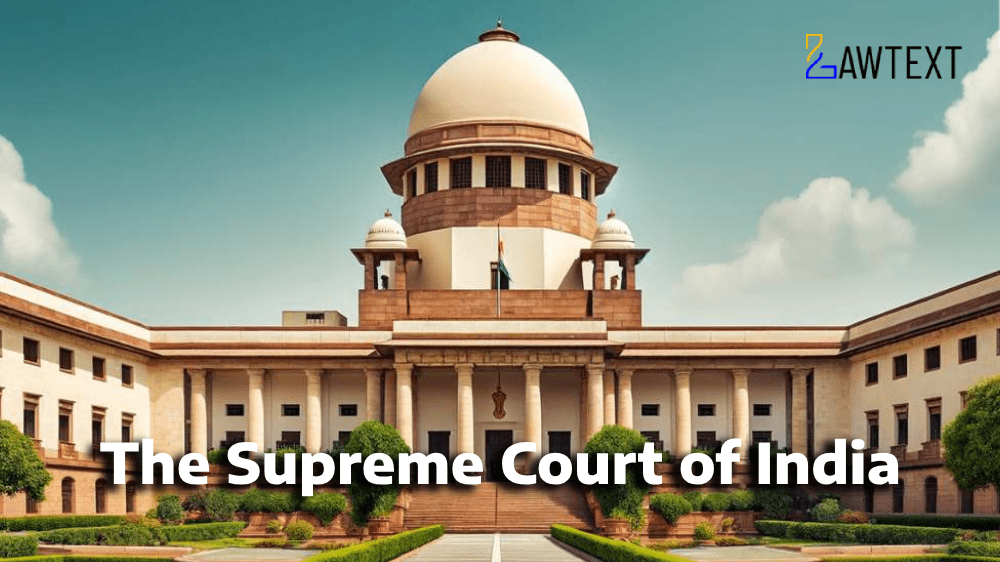CASE NOTE & SUMMARY
The Supreme Court of India dealt with the challenge against "The Khalsa University (Repeal) Act, 2017," which repealed the earlier act that established Khalsa University. The appellants argued that this repeal was arbitrary, discriminatory, and violated Article 14 of the Constitution. The court examined whether the singling out of Khalsa University, as opposed to other universities established under a similar policy, was constitutionally valid.
The Court held that differential treatment of Khalsa University was justified based on the need to protect the heritage status of Khalsa College. Relying on established precedents, the judgment clarified that legislation singling out a single entity can be constitutionally valid if based on a reasonable classification with a rational nexus to the object, in this case, the preservation of a historical institution.
Introduction & Facts (Paras 1–3):
- The appeal arises from the High Court judgment upholding the constitutionality of the Khalsa University (Repeal) Act, 2017.
- The appellants, Khalsa University and its Charitable Society, argued that the repeal was unjust, arbitrary, and violative of Article 14, as it only targeted Khalsa University out of several private universities established under the same 2010 Policy.
Background (Paras 3.1–3.10):
- Khalsa University was established under the Punjab Private Universities Policy, 2010, which encouraged private, self-financed universities. It was imparting education in 26 programs with over 200 students enrolled.
- The repeal was proposed to protect the heritage of Khalsa College, which was founded in 1892. The State believed Khalsa University’s establishment threatened the college's historic character.
Appellants' Arguments (Paras 5–9):
- The appellants claimed that the repeal act was motivated by political vendetta, specifically citing statements from then-Chief Minister Captain Amarinder Singh.
- They also argued that out of 16 universities, only Khalsa University was singled out, which violated the principle of equality under Article 14.
Respondents' Defense (Paras 10–13):
- The State justified the repeal based on the heritage value of Khalsa College, arguing that a confusion between the college and university would tarnish the college’s historical identity.
- The burden of proof was argued to lie with the appellants, who failed to demonstrate that the classification was arbitrary or discriminatory.
Judgment & Ratio (Paras 14–56):
- The Court ruled that the classification was reasonable, based on the distinctive heritage character of Khalsa College.
- The court reiterated that a single institution could be treated as a class by itself if special circumstances justify such treatment.
- Previous rulings, including Chiranjit Lal Chowdhuri v. Union of India and S.P. Mittal v. Union of India, were cited, affirming that a legislative act impacting a single entity can be constitutionally valid if there is a rational connection to the legislative purpose.
Conclusion (Paras 57–59):
- The Court dismissed the appeal, holding that the preservation of Khalsa College’s heritage status was a sufficient and valid ground for repealing Khalsa University’s establishment.
Acts & Sections Discussed:
- Article 14, Constitution of India: The appellants argued that the repeal was discriminatory and violated the right to equality.
- Khalsa University Act, 2016: The act under which Khalsa University was established.
- Khalsa University (Repeal) Act, 2017: The act that repealed the establishment of Khalsa University to protect the heritage status of Khalsa College.
Ratio Decidendi:
A legislative enactment that treats a single entity differently is constitutionally valid if based on reasonable classification and a clear objective, in this case, preserving the heritage status of Khalsa College. The Court ruled that such classifications need only be rational and not arbitrary to satisfy Article 14.
Citation: 2024 LawText (SC) (10) 32
Case Number: CIVIL APPEAL NO. OF 2024 (Arising out of SLP(C) No. 33094 of 2017)
Date of Decision: 2024-10-03
Case Title: KHALSA UNIVERSITY AND ANOTHER VERSUS THE STATE OF PUNJAB AND ANOTHER
Before Judge: (B.R. GAVAI J. , K.V. VISWANATHAN J.)
Appellant: KHALSA UNIVERSITY AND ANOTHER
Respondent: THE STATE OF PUNJAB AND ANOTHER

